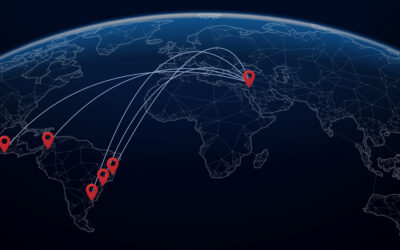Pros and cons of working in multiple time zones
Compared to the advantages, the disadvantages of working in multiple time zones are minor inconveniences. This is evidenced by the fact that more and more companies are opting to work remotely.

Pros
One clear benefit for remote companies is the expanded talent pool. Hiring globally means getting the best engineers, designers, marketers, etc., in the world, not just in your city, time zone, or even country. With this global team, you create more diversity of thought, which can result in more innovation and revenue.
But the benefits aren’t just limited to internal operations. A significant advantage of a team working across multiple time zones is that you can run operations around the clock. If you’ve covered all the time zones, someone worldwide will always be working and serving customers without needing late-night shifts.
Cons
Of course, only some things are best when collaborating across multiple time zones. With such a big gap between certain time zones, remote teams will inevitably experience delayed responses and difficulty scheduling meetings.
Beyond that, remote employees can also experience isolation as there’s no in-person interaction or activities like team lunches and happy hours. This is especially true if you’re the lone team member in a different time zone.
Waking up to a silent team chat, phone, or online communication tool, or conversely, in the middle of a hectic workday schedule for employees in other countries, can feel unsettling or overwhelming.
your global work team
But working remotely and with employees worldwide has more advantages than disadvantages. Are you ready to join this cultural change? Are you interested in hiring different employees from different parts of the world? Contact us
Related content
RootsEOR and CWS Israel announce strategic partnership to enhance Global Employer of Record services
We are thrilled to partner with CWS Israel, a company that shares our dedication to compliance, transparency, and delivering world-class EOR solutions
EOR vs legal entity: understanding your options for global employment
Welcome to this informative article that explores the key differences between an Employer of Record (EOR) and a local business entity. We will also delve into the intricacies of operating a legal entity across various jurisdictions, highlighting the importance of compliance.
Selecting top remote talent: a guide to choosing the perfect virtual employee
Unlocking the secrets to finding the ideal remote talent can be a daunting task for employers.
Exploring Latin American opportunities and the role of Employer of Record in global expansion
As companies look to expand globally, Latin America emerges as a promising market with vast opportunities.
Workers all around the world
Find out why companies are hiring more and more employees all over the world.
Hiring international, a safe way to earn more money
But before doing so, consider these factors to increase your chances of hiring success.






